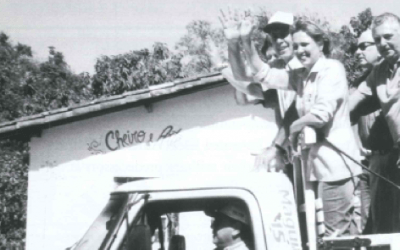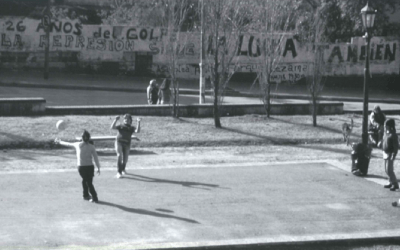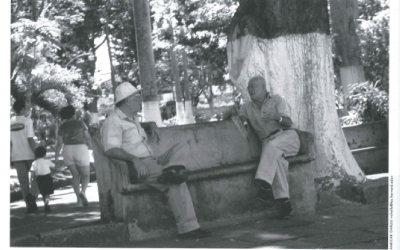Harvard Study Abroad
It’s Getting Easier!
The face of study abroad at Harvard is changing. Last May, the Faculty of Arts and Sciences (FAS) adopted a new study out of residence policy. The administration now views study abroad itself as a meaningful supplement to a Harvard education. No longer must students prove they have found a “special opportunity” not available to them in Cambridge. Language study is encouraged but not longer required, and students can both choose from pre-approved study abroad options or design their own. The result, says DRCLAS director John Coatsworth, who also chairs the FAS Faculty Committee on Study Out of Residence, is a great deal of flexibility. “A mathematician can study in Budapest without knowing Hungarian, or a student can study the tropical biosphere in the jungle where there are no language teachers, if he or she so chooses.”
DRCLAS and the Department of Romance Languages and Literatures can help students tailor a study abroad experience to their personal needs and interests. With a grant from DRCLAS and the Department of Romance Languages and Literatures, Spanish preceptor Johanna Liander traveled to Chile and Argentina this summer to investigate study abroad options. In addition to identifying programs in language, literature and culture for her own department, Liander also pinpointed strong curricula in such disciplines as political science, economics and natural sciences.
“I hope more faculty members do what I did,” Liander says of her trip, “because there is a massive initiative to encourage students to go abroad from all departments. Many of my students interested in Latin America are not concentrators, and I hope we can provide even more information to them in the future.”
Liander spent 18 days visiting 14 sites at 12 universities, striving to obtain a sense of their strengths and the distinct types of opportunities they could present to Harvard students. DRCLAS already boasts a database of up to 300 study abroad programs or universities in Latin America, which students can search by country or interest. Liander’s findings will further the DRCLAS goal of becoming familiar with six to twelve universities in each country. Then, she says, “we can tell a student to study physics at university X, theatre at university Y, and for Latin American literature go to university Z.”
At every institution, the administrators, faculty and students were “very willing and able to help, and positive about the prospect of developing a relationship with Harvard,” Liander reports. She sees her trip as “an important step for Harvard to identify strengths in various universities abroad so that we can provide students with a variety of experience options.” However, she notes, “first we have to make students aware that it is possible to go abroad without a major struggle.”
In Buenos Aires, Liander visited three campuses of the Universidad de Buenos Aires (UBA): El Centro de Idiomas, Ciencias Exactas, and Filosofia y Letras. She describes the UBA “as a very large public institution of high and long-standing intellectual reputation, and probably the best choice for graduate or highly focused undergraduate students.” Those students who want a small campus but are reluctant to forgo a bustling urban setting might look to a new public university primarily for working people in Buenos Aires, the Universidad 3 de Febrero.
For the student looking for an even cozier atmosphere, Liander identified two smaller private universities: the Universidad de San Andres in the peaceful suburb of Victoria, and the Universidad Tocuato di Tella in Belgrano, a charming Buenos Aires neighborhood. Torcuato di Tella, says Liander, “is particularly strong in political science, history and business.”Another great option for the social sciences is FLACSO, as the Buenos Aires office is not only a research center but also offers undergraduate and graduate programs.
In Santiago, Liander visited two large institutions, the private Universidad Católica and the public Universidad de Chile, as well as the smaller private Universidad Diego Portales—all colleges she calls “very ready to take on students.” In Valparaiso, Liander found the Universidad Católica and Universidad Técnica Federico Santa Maria to be first-rate undergraduate options. In Chile’s verdant lakes region, the Universidad Austral de Chile in Valdivia is a good alternative for students seeking a more rural experience, and is very strong in both science and literature. And close to both the lakes region and ski country, Chile’s second largest city, Concepción, is home to the Universidad de Concepción, which Liander describes as “a liberal university on a beautiful campus that is very equipped to accommodate U.S. students.”
In the coming year, the Committee on Study Out of Residence will work with Harvard departments and centers to find viable programs for their students, just as Liander did for Romance Languages and Literatures, DRCLAS, and the University as a whole. “I hope we can make study abroad experience closer to extraordinary and unique, and set the standards for how other universities think about study abroad,” Coatsworth says. “We will continue to help individual students find the one place in Latin America where they will be best treated and learn the most about what they want to study.”
Fall 2002
Eileen O’Connor concentrated in Romance Languages and Literatures at Harvard and graduated in 2000.
Related Articles
Democracy: Editor’s Letter
Ellen Schneider’s description of Sandinista leader Daniel Ortega in her provocative article on Nicaraguan democracy sent me scurrying to my oversized scrapbooks of newspaper articles…
A Look at the International Environment
The creation, consolidation, and improvement of democratic institutions do not happen automatically. Democracy (however it is defined) requires both favorable conditions and a certain…
Legislatures and Political Accountability
In March 2000, while researching legislatures in several Latin American countries, I found myself in Caracas. This promised to be a quiet stop given that Venezuela was, at the time, without a real…




